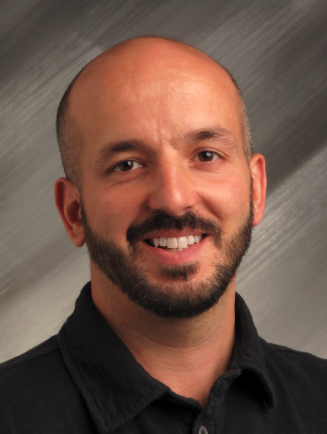The cleansing properties of an honest confession
Anthony G. Siegrist // October 6, 2019, 6:00 am

Saying “I am sorry” may well be the most difficult thing we ever do, writes the author, but these are the words that let in the healing winds of forgiveness. Photo by Jake Young on Unsplash.
In the biblical world, hyssop was used for both medical and ceremonial purposes. It’s an aromatic plant, a bit like sage or mint. It was prescribed for sore throats and upset stomachs.
The ancient Hebrews used it in purification rituals. That’s what the poet in Psalm 51 has in mind when he asks to be “purged with hyssop” (Psalm 51:7). He has confessed; he’s hoping to be cleansed and forgiven.
The most famous advocate in our own time for the power of confession and forgiveness must be Desmond Tutu. In 1986, Tutu was named the Archbishop of Cape Town, South Africa. The job came with an official residence in an area known as Bishopscourt.

The hyssop, native to Middle East and Southern Europe, has antiseptic and medicinal qualities. Photo by Lotus Johnson on Flickr.
At the time, black folks like Tutu needed special passes just to enter that part of the city. Archbishop Tutu declined to apply for such a pass. He decided he would live in the archbishop’s traditional residence with or without the approval of a racist government. Tutu did not lack for courage.
When Nelson Mandela was released from prison he spent his first night as a free man in that residence, hosted by the archbishop.
Desmond Tutu called his country to truthfulness – what we might call ‘confession’ – and with it, to forgiveness.
By that time Tutu was looking towards retirement. He had worked for decades as a pastor and an activist. He had helped bring change to one of the most oppressive situations in the world. He had earned some rest.
However, in 1995, the newly elected Nelson Mandela asked Archbishop Tutu to chair South Africa’s Truth and Reconciliation Commission. His purple robes graced the commission’s meetings and added solemnity to the hearing of thousands of testimonies.
The commission heard from victims and offenders. They heard stories of horrific violence and deep pain. Their challenge was to help the nation find a way forward that wasn’t either forgetfulness or full prosecution. The violence had been perpetuated by so many, that it was difficult to imagine how full criminal prosecution could ever be broad enough to be more than a victor’s justice.
Instead, Desmond Tutu called his country to truthfulness, what we might call ‘confession’ and, with it, to forgiveness.
Cycle of harm
Psalm 51 and 2 Samuel 12 put these same themes before us: Confession and forgiveness. None of us are responsible for national-level commissions like Archbishop Tutu and his colleagues. What we are all responsible for, though, are the network of relationships in which we move in each day.
After leading the truth and reconciliation process in South Africa, Desmond Tutu received many requests to speak and to give interviews. He spoke in charged situations, like Rwanda, Israel, Palestine and Ireland.
Forgiveness is giving up our right to revenge.
When he was asked to define forgiveness, Tutu would usually say something like this: Forgiveness is giving up our right to revenge. When someone harms us, they incur a debt toward us. They owe us something. We have a right to see the scales re-balanced. Or to put it the other way round. When we harm someone they have a claim against us. This is how the moral universe works, Tutu would say.
This system of debt and repayment keeps chaos in check, but it doesn’t do much to promote healing.
Politically, it ends up in a dogfight where the one who is picked on wants nothing more than to get enough power to pick on the others. The one who is traumatised responds by traumatising others. Perhaps you’ve heard the true story of a man who attacked a cardiologist. Years before, the cardiologist had operated on the man’s mother. She died. The man had nurtured this grudge for two decades before trying to get even.
David was hunted and harassed by Saul. He feared for his life. He was forced into hiding.
David treated others with the same brutality he had experienced.
But what we see in 2 Samuel is that when David became king himself, he treated others with the same brutality he had experienced. He was jealous of a general and had a man killed. David did not do the internal work required to get out of that cycle of harm.
He was trapped in a system of harm and revenge, trauma and violence. We get trapped in his too. It means that we can’t feel right about something that has happened to us until we get even.
Or, to spin it the other way, we worry that it is impossible for us to repay someone we have harmed. I can imagine a parent, after his or her kids are grown and gone, finally realising the harm they had inflicted on the children. How can you ever repay that kind of a debt? How can you re-balance the scales? It isn’t possible.
Stale air
Judging from Psalm 51, what David seems to have realised is that not only did he harm Bathsheba and her husband, but he had also wronged the One who created both of them. The general’s life belonged to God and David had taken it.
We can’t look for forgiveness unless we own the harm we’ve created.
How long David lived with this sense of guilt, we do not know. Yet at some point, tradition tells us it prompted the poem we read today.
It begins like this: “Have mercy on me, O God, according to your steadfast love.” (Psalm 51:1)
Here’s the third verse: “For I know my transgressions, and my sin is ever before me.” (Psalm 51:3)
The sixth, “You desire truth in the inward being; therefore teach me wisdom in my secret heart.”(Psalm 51:6 )
And: “Purge me with hyssop, and I shall be clean.” (Psalm 51:7)
But I imagine that if David were to talk to Desmond Tutu, the archbishop would have wanted him to be a bit more specific. If Psalm 51 were David’s only confession, it’s too vague. It isn’t fully honest. Many of us know from experience that full honesty about the mistakes is cleansing.
Saying “I am sorry” gives us access to the healing winds of forgiveness.
We can’t look for forgiveness unless we own the harm we’ve created.
Desmond Tutu uses an analogy to explain things. Our inner life, he says, is like a room. It has the windows closed, the curtains drawn. Fresh air is out there, cool, clean air. But inside the room, it is stagnant.
Without honest confession, we recycle the same old, stale air. We need to open the windows and pull back the curtains. We need to say that we are sorry.
Tutu says that saying “I am sorry” may well be the most difficult thing we ever do, but these are the words that let the fresh air in. They give us access to the healing winds of forgiveness. (1 John 1:9)
We forgive because God has forgiven us
When he spoke in places riven by conflict, Desmond Tutu did not convince everyone that forgiveness was the way forward. He didn’t convince everyone, but, because of his own experience, he did get a hearing. Tutu was moved by the situation in South Africa, certainly, but also by the words of Jesus on the Cross.
Jesus prayed that God would forgive those who persecuted Him. I imagine Tutu was inspired too, by the teaching prayer of Jesus, what we call the Lord’s Prayer (Matthew 6:9-13).
This prayer includes a cry for justice: “Your will be done, on earth as it is in heaven.” (Matthew 6:10) That is plea for change.
Yet the prayer also includes this line: “Forgive us our trespasses (or ‘debts’) as we forgive those who trespass against us.” (Matthew 6:12)
We confess the ways we have harmed others because that is the path to divine forgiveness; We forgive those who have harmed us because God has forgiven us.
This article was first published on Ps Anthony G. Siegrist’s blog and is republished with permission.
Raped by seven men at 15: Joy Tan-Chi Mendoza on forgiveness and hope in Christ
We are an independent, non-profit organisation that relies on the generosity of our readers, such as yourself, to continue serving the kingdom. Every dollar donated goes directly back into our editorial coverage.
Would you consider partnering with us in our kingdom work by supporting us financially, either as a one-off donation, or a recurring pledge?
Support Salt&Light



